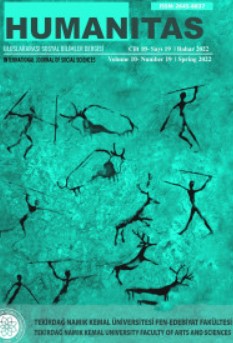Türkçe ve Japoncada Öfke Duygusunu İfade Eden Deyimler Üzerine Kavramsal Bir Sınıflandırma
A Conceptual Classification on Idioms Expressing the Emotion of Anger (Ikari) in Turkish and Japanese
Author(s): Ayşegül AtaySubject(s): Foreign languages learning, Comparative Linguistics, Turkic languages
Published by: Namık Kemal Üniversitesi Fen-Edebiyat Fakültesi
Keywords: anger; idioms in Turkish Japanese; ikari; conceptual field; meaning;
Summary/Abstract: Learning a foreign language is about knowing the vocabulary very well. One of these is idioms. Idioms expressing the feeling of anger, which has an important value in communication, are abundant in the vocabulary. In this study, Turkish and Japanese idioms describing the emotion of anger were examined. Anger is "ikari" in Japanese. Reflection of this mood on the language is expressed by idioms consisting of concrete concepts in both languages. For example, in case of getting angry, it is said that kan beynime çıktı in Turkish, while in Japanese it is called atama ni kita. There are other idioms in Turkish and Japanese that describe the feeling of anger. What concepts do these idioms consist of? In this study, a comparison was made by determining the conceptual area of anger in Turkish and Japanese. As a result, besides the common concepts in the conceptual area, different concepts were detected.
Journal: Humanitas - Uluslararası Sosyal Bilimler Dergisi
- Issue Year: 10/2022
- Issue No: 19
- Page Range: 66-92
- Page Count: 27
- Language: Turkish

